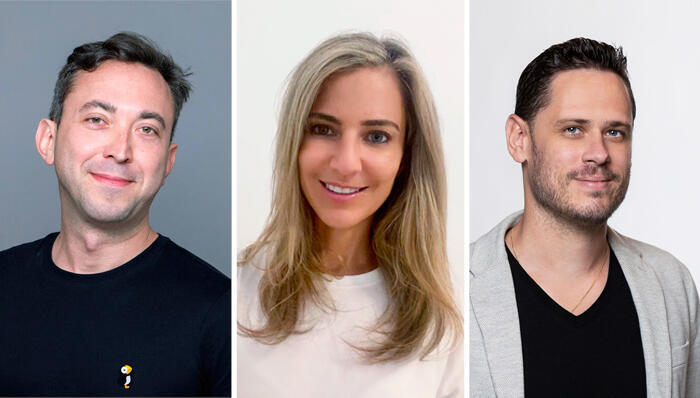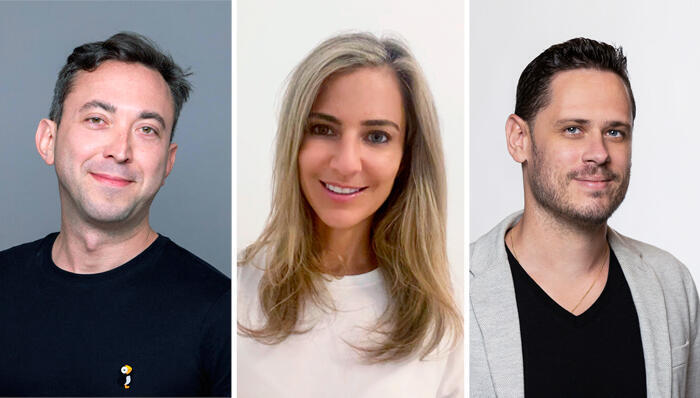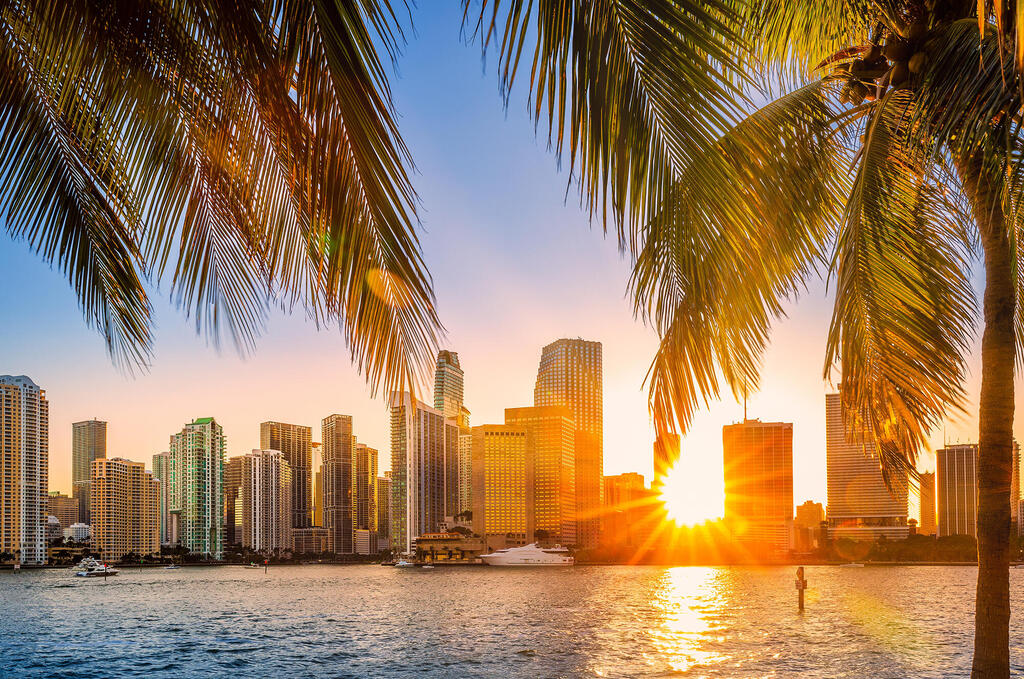
Miami 2024
Israeli entrepreneurs lead the charge as Miami emerges as a new tech and investment hub
CTech spoke to Israeli entrepreneurs thriving in Miami's growing tech ecosystem ahead of Calcalist's Tech & Invest Conference in the city on November 13-15, exploring how this vibrant community is driving innovation and reshaping the landscape of the Southeast U.S. tech scene.
At a time when establishing a new national or global tech hub in the United States seemed nearly impossible—especially with the historical dominance of Silicon Valley and the vibrant business landscape of New York—a group of pioneers, businesspeople, tech entrepreneurs, and visionaries is converging in Miami, Florida. They are betting big on the city as a promising location for innovation and investment. Traditionally known for its real estate and lifestyle, Miami has recently emerged as a burgeoning center for technology and venture capital investments.
More on Miami conference: Venture capitalists turn Miami into a hub for Israeli startups
"The massive influx of entrepreneurs and senior executives to Miami after the COVID-19 pandemic has changed the face of the city," explains Yuval Golan, founder and CEO of the fintech company Waltz, which develops a platform for real estate investment purchases in the U.S. by foreign investors. "The increased taxation and stricter regulations in states like California and New York, combined with global inflation, have pushed a layer of affluent individuals—such as senior investment managers, venture capital funds, and CEOs of large companies—to seek states with more favorable tax systems and a higher quality of life. Miami has offered them an attractive solution, and around it, a vibrant community of investment and technology ventures has slowly begun to develop."
2 View gallery


Yuval Golan (from left), Limor Ashkenazi and Jeremy Suard.
(Photos: Eitan Bernat and Exodigo)
According to Golan, Miami is undergoing a significant transformation fueled by the recent influx of tech companies and professionals. “This boom isn't happening in isolation but is driven by a confluence of factors, reshaping Miami's economic landscape, cultural fabric, and overall development trajectory. This influx of tech professionals, often from diverse backgrounds, is changing the city's demographics and cultural landscape. And the place of Israelis within Miami's tech scene, highlighting how this migration is bringing new cultural influences and contributing to the city's growing international flair.”
Golan stresses that Miami's local government is playing a key role in fostering this tech-driven growth. He describes the local government as business-friendly and receptive to the needs of the tech industry. The local administration is actively promoting a favorable environment for startups and entrepreneurs. Streamlined regulations, particularly those related to digital services and business operations, are some of factors contributing to Miami's attractiveness for tech companies.
In November 13-15 2024, Calcalist will host the MIAMI TECH & INVEST CONFERENCE, a tech and innovation conference in Miami, the new technological capital of the southeastern United States. The event will explore Miami's rise as an investment and technology hub, driven by the mayor's proactive support. Panels, lectures, and interviews will focus on the city’s strengths and key sectors, highlighting promising startups. Central to the discussions will be whether Miami can become a viable alternative to San Francisco and Silicon Valley and its future trajectory. Additionally, tech and investment executives from Israel and the U.S. will examine how innovation is applied across various fields, including national defense, cybersecurity, AI, energy, and climate challenges.
"Florida is an attractive state due to a combination of its favorable business climate, tax advantages, its strategic location, cultural diversity and lifestyle”, says Limor Ashkenazi, director of SelectFlorida's Israel office. “Florida is shifting from its traditional image as a tourist destination to a prime business location, establishing itself as a global hub for sectors such as technology, medicine, finance, creative fields and trade and logistics”.
Florida, the third-largest state in the United States with a population of 22.5 million, is experiencing rapid economic growth. Its strategic location, coupled with a favorable business climate, has attracted a significant influx of businesses, investments, and talent. As Florida’s official international trade and investment promotion agency, SelectFlorida provides a range of services to prospective investors, as well as existing Florida companies.
According to SelectFlorida data, Florida's economy is robust, boasting a GDP of $1.4 trillion, surpassing that of several nations. Its thriving business sector encompasses 2.8 million businesses employing over 10.9 million people, with a low unemployment rate of 2.7%. Florida's international trade and investment are also substantial, with over $190 billion in international trade and $100 billion in foreign direct investment stock. The state's tourism industry is a major economic driver, attracting nearly 140 million visitors annually, including 15 million international tourists.
Florida's technology sector is emerging as a key driver of its economic growth. The state's R&D expenditures exceed $11.3 billion, and venture capital investment in 2022 reached $9.7 billion. With over 600,000 employees working in 36,344 high-tech firms, Florida is the third-largest tech exporter in the United States.
Florida's venture capital ecosystem has witnessed significant growth in recent years. The state experienced the largest percentage increase in venture capital deals from 2021 to 2022, with $9.7 billion invested across 601 deals in 2022. This surge in venture capital funding has supported startups in various sectors, including crypto, space, esports, gaming, cyber, medtech, proptech, and more. Florida's favorable business climate has attracted major financial institutions to the state. Citadel, a $51 billion hedge fund, relocated its headquarters to Miami in 2022. Ark Investment, an asset management firm with over $80 billion in assets under management, also moved from New York City to St. Petersburg, Florida, in 2021 and partnered with a local innovation center.
Ashkenazi, as Golan, emphasizes the importance of the taxation flexibility offered by the local government. The state has one of the lowest corporate income tax rates in the United States at 5.5%, and many small businesses are exempt from this tax. Florida also does not have a personal income tax, making it a more tax-friendly state compared to many others.
With favorable tax conditions, ample investment firms and angel investors, a supportive community, a strategic location, and of course pleasant weather, Israelis are also drawn to Miami. “For the record we chose Miami due to factors such as customer base, investor interest, infrastructure, tax incentives, and favorable weather. However, the truth is that my wife selected the city after seeking a more vibrant and enjoyable place to live. The dilemma was between Miami, New York or Los Angeles. Miami won,” says Jeremy Suard, Co-Founder and CEO of Exodigo.
“We were starting a new family just before the relocation, and for any entrepreneur, having a solid and supportive home base is crucial for successful operations. All I sought was a city with a convenient and accessible airport, as I frequently travel 2-3 times a week to various locations across the United States,” explains Suard.
Founded in 2021, Exodingo currently employs 120 people, 40 of them are located in the United States. Only one employee, Suard, the CEO, is located in Miami. Exodigo, which has already raised over $100 million, was founded by alumni of the IDF’s intelligence units. They veered from tradition by opting not to establish yet another cyber company, as most army intelligence graduates do, but to develop an AI solution for underground mapping, produced through simulation of multiple sensors, 3D imaging, data fusion, and a proprietary AI platform. Its technology allows for subterranean infrastructures and various subsoil features to be identified on a map without the need for time-consuming and costly digging operations.
Suard and his family arrived in Miami on October 1, 2023, but due to the outbreak of war immediately after the establishment, he returned to 3 consecutive months of reserve service in Israel. “In Israel, I used to arrive at the office between 7:30 and 8:00 am and had about an hour and a half of quiet time to start the day at a relaxed pace. In Miami, I wake up at 6:00 am and start my day at 6:30 am with a ‘frenzy’ of Zoom meetings with colleagues in Israel.”
As someone who forms a bridge between the worlds of high-tech and real estate in Miami, Golan also offers some insights into how cultural and ethnic differences impact real estate investors in Miami. Golan’s Waltz's platform manages the entire process of facilitating real estate purchases for foreign investors, including property identification, negotiation, and closing the deal. “A foreign client contacts us and we close the deal within 14 days, and he doesn't have to fly to America. We do everything for him.
“Israelis really love income-generating properties with high percentages, so they focus on Ohio, Georgia, Arizona, Texas, and Florida. Latinos and South Americans are looking for a place to park their money, so they look for luxury condos and beautiful towers with infinity pools that cost millions because they're afraid of instability. They want to throw more money around and don't care if it won't yield, as long as they can tell their friends - I have a luxury condo in Miami.
“Naturally, Mexicans prefer to buy real estate in Texas and Florida, while Colombians and Brazilians, of course, in Miami and Florida in general. Israelis are all over the United States where there are good opportunities. The properties depend on the culture. Asian investors buy properties in Florida but only live in them during the winter because they don't like the Florida summer,” explains Golan.
According to Golan, Israeli and Jewish businesses in Miami can benefit from a supportive ecosystem. This could manifest as mentorship opportunities, shared resources, and a collaborative business environment. "Given that my company operates in both the high-tech and real estate sectors, I have a comprehensive overview of the Israeli and Jewish community in Miami and am well-connected to its ecosystem. I think that the presence of prominent Israeli investors and venture capitalists in Miami can provide businesses with access to much-needed capital."















